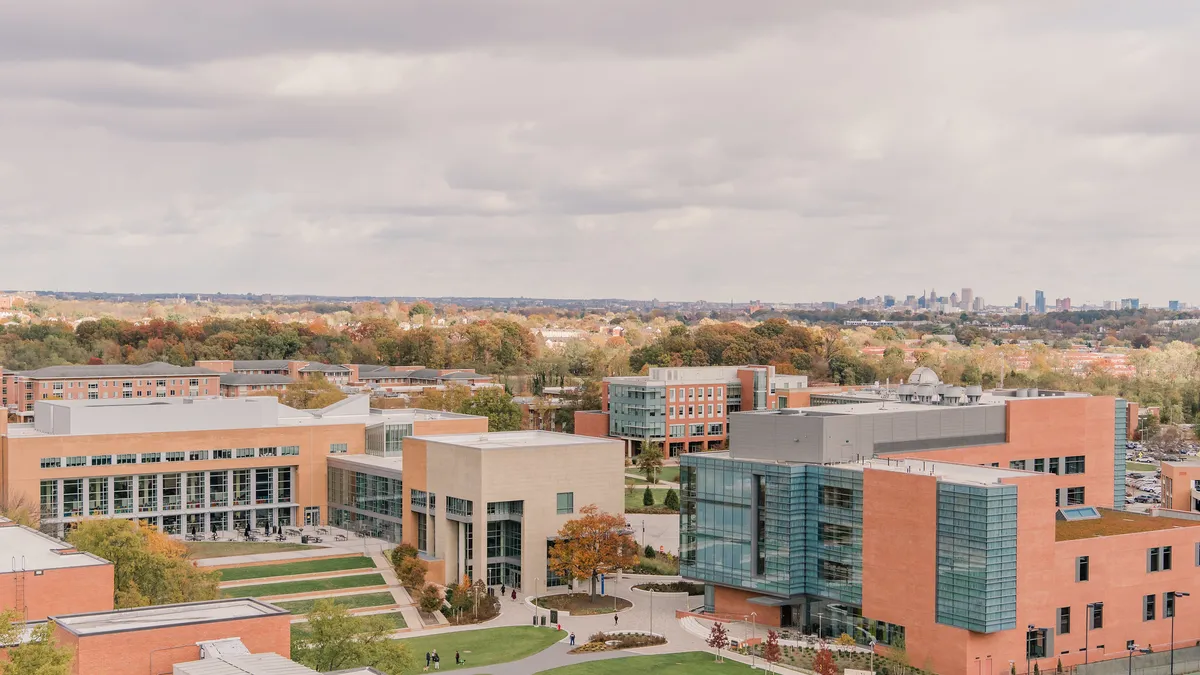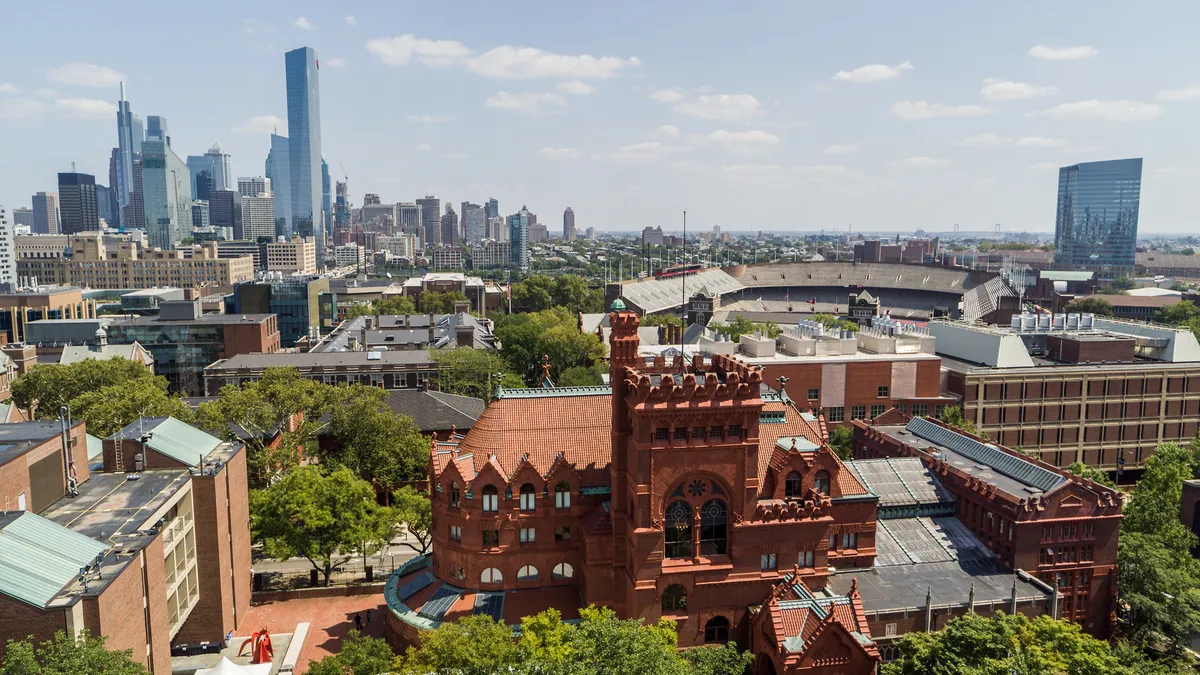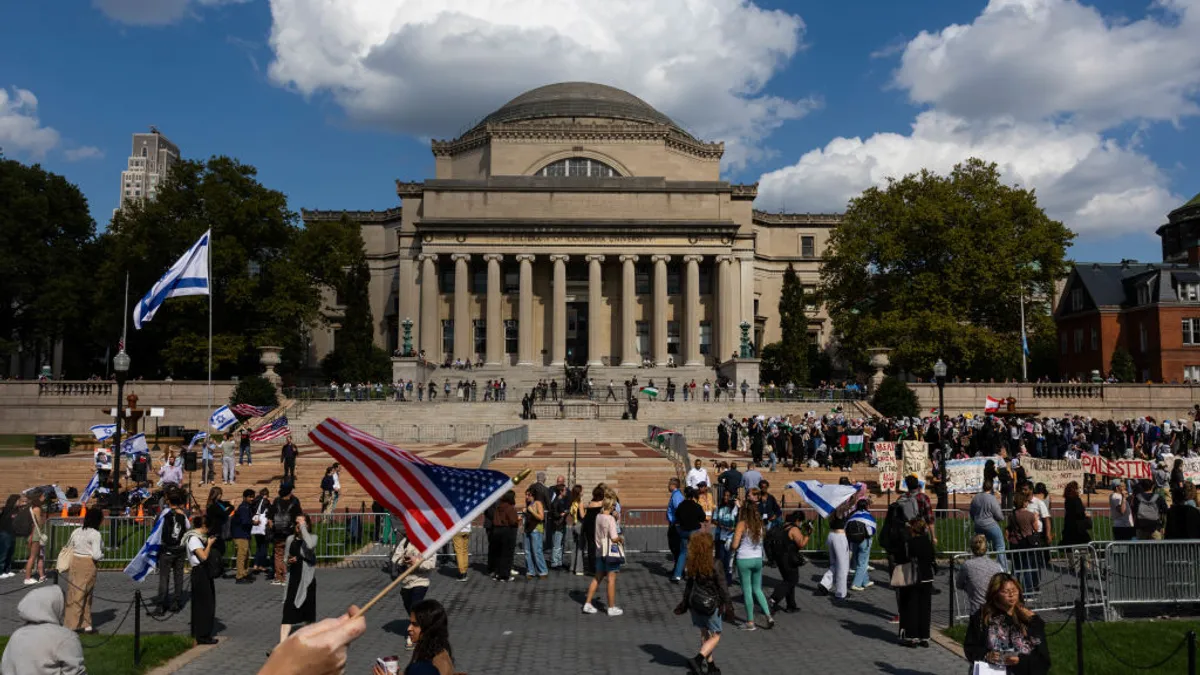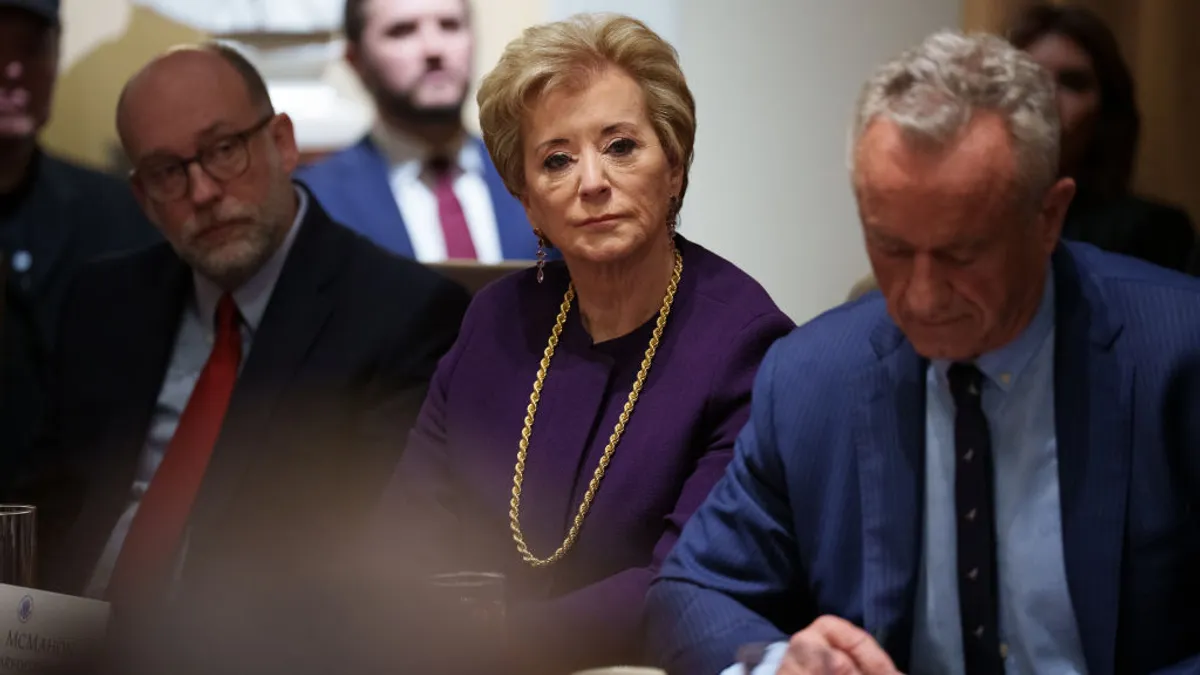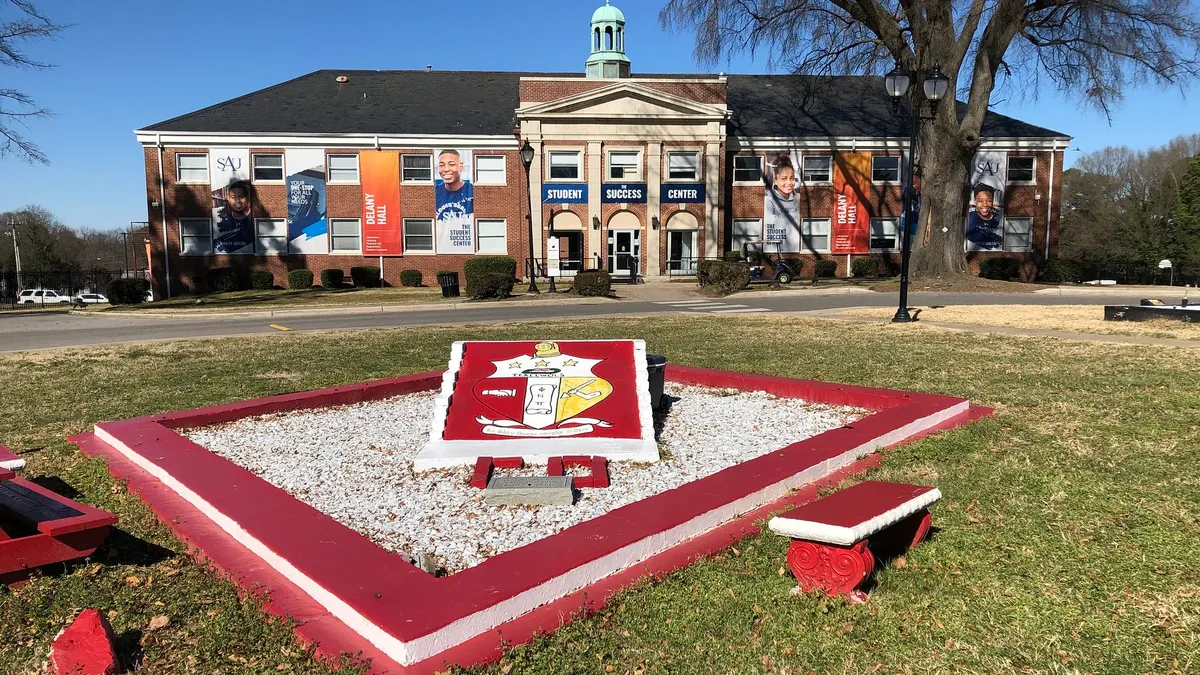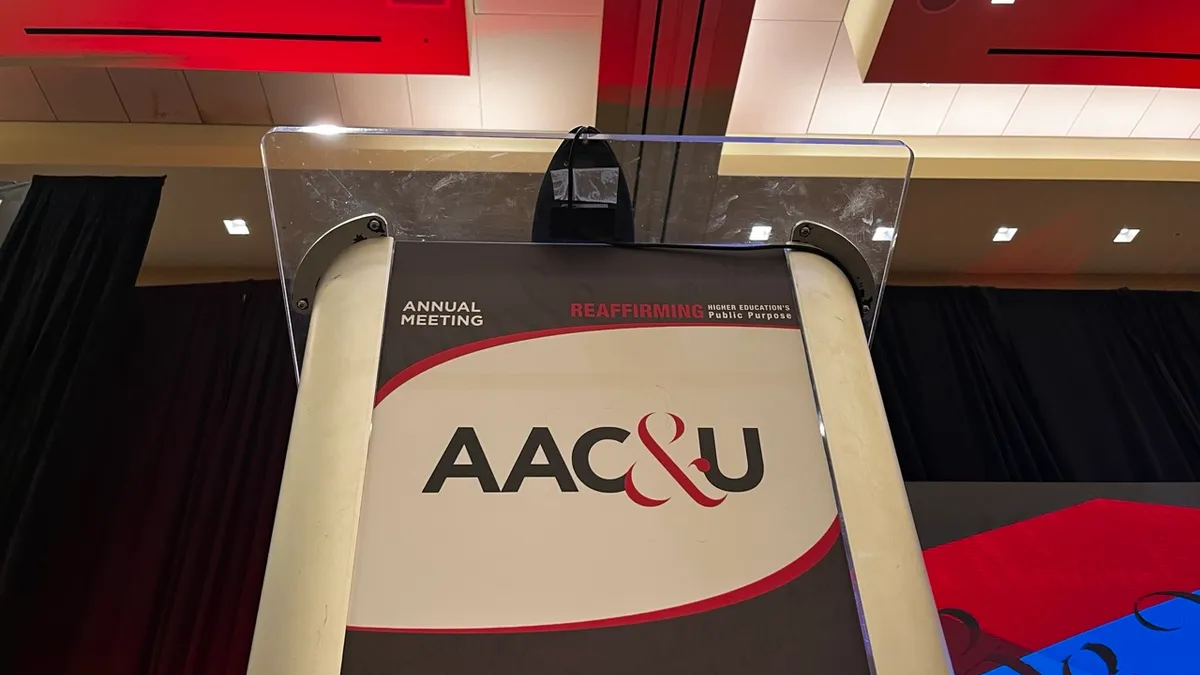When longtime University of Maryland, Baltimore County President Freeman Hrabowski announced he will step down from the role at the end of the 2021-22 academic year, a question loomed: Who would succeed him?
Hrabowski became a prominent figure in higher education after starting in the UMBC presidency in 1992, advocating for shared governance and diversity and inclusion. At UMBC, a relatively young public institution that only held its first classes in 1966, he also co-created the Meyerhoff Scholars Program, designed to help keep and graduate more STEM students from underrepresented backgrounds. The program served as a blueprint for other colleges, inspiring similar projects across the country.
This month, the university announced his successor, Valerie Ashby, who will fill the role beginning in August. Ashby is wrapping up her post as dean of Duke University's arts and sciences college. Previously, she chaired the University of North Carolina at Chapel Hill's chemistry department.
She spoke with Higher Ed Dive about taking over a storied legacy, leading through listening and what it takes to make a top-tier university welcoming to all.
This interview has been edited for brevity and clarity.
HIGHER ED DIVE: What drew you to this position and to UMBC as a whole?
VALERIE ASHBY: As soon as I read their vision, I thought I could wake up every day committed to that, working with a group of people who are already excelling in this space. To say "we will advance knowledge, economic prosperity and social justice by welcoming and inspiring inquisitive minds from all backgrounds" — that's spiritual to me. That is at the core of not just what I do, but who I aspire to be. For an entire university to take that on, it doesn't get any better for me.
How are you approaching the challenge of following such a well-known leader?
There is no such thing as following Freeman. I am not trying to be him, and I don't feel pressure from the institution or him to do so.
Part of why I'm not overwhelmed is because Freeman's been such a great mentor and example for me. I, along with many leaders across the country, I think, would call him the presidents' president. He has sought to help me be my best self, rather than trying to mirror him. What I'm truly following is a legacy, one that goes back to the university's vision for itself. It's bold and courageous, and the people walk the talk.
What does a successful first year as UMBC's president look like to you?
I don't know if I fully know the answer to that yet. For the first year, I'm going to be listening a lot.
One of the things I love about this institution is that it's serious about shared governance. I appreciated that in the interview process nobody asked me what my five-year plan would be. If I answered that question then or now, it feels inappropriate at best and dismissive and noninclusive at worst. Freeman has been fully engaged with employees and students, and we will not deviate from that.
There is so much more to do when it comes to being a national leader of inclusive excellence and determining what that looks like at an R1 university. UMBC doesn't have a sense of resting on its laurels.
How do you respond to the idea that focusing on diversification in faculty and students draws resources away from academic advancements?
We have to get out of this mindset that diversity and excellence are in some kind of competition or on opposite ends of a spectrum. That is not true. If we didn't believe in diversity, we would not be trying to deliver a liberal arts and sciences education. It's based on the idea that students need to know something about arts and culture and religion and ethics and computing, a bit of everything. The very nature of what we deliver is diverse.
The most creative solutions to the world's most challenging problems come from diverse teams of people. The proof is in the data. That's not just intellectual diversity. We're talking about racial, ethnic, cultural, gender, all forms of diversity. So what I say is, if you think your school is excellent and you're not diverse, you're not as good as you can be.
How can educators go about dismantling that mindset?
It's a culture change, which is not trivial. You may have to break some things in order to create something new.
If you've always hired a certain way and gotten a certain demographic, you need to hire differently. It doesn't mean you lower the standard, but you do have to open your eyes more broadly. I've seen that at Duke. They have hired some extraordinary new scholars and we haven't lost a step in excellence.
UMBC has become the perfect example of excellence that is unachievable without diversity. They have produced Truman scholars and Rhodes scholars, for an institution as young as they are. They're leading because they have invested in this concept of excellence through diversity. It's work every single day and it's worth it. Once you prove it to yourself, you'll never go back.



